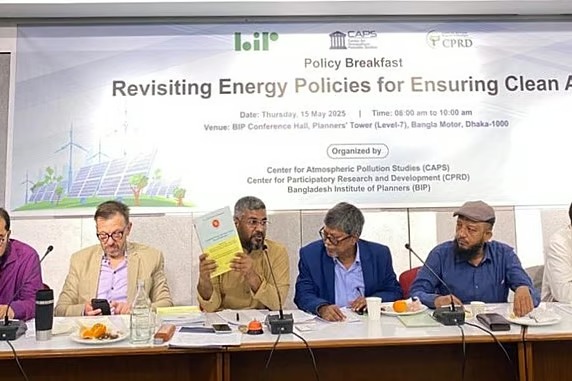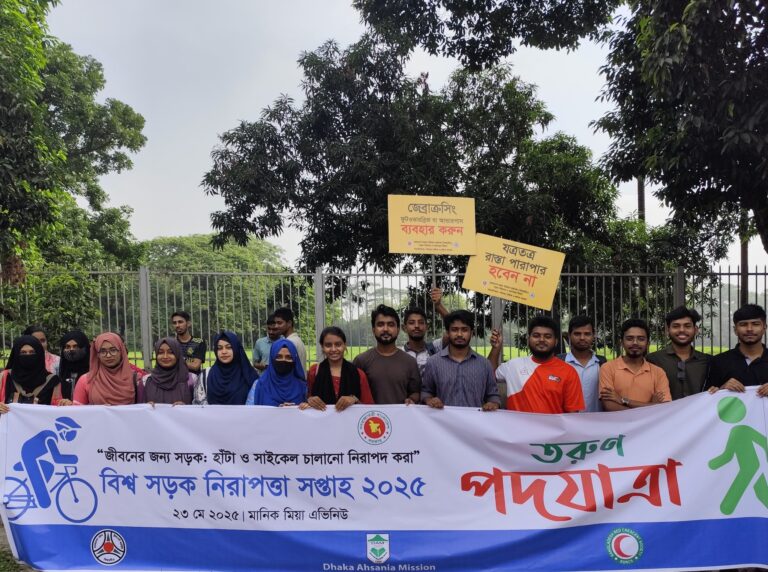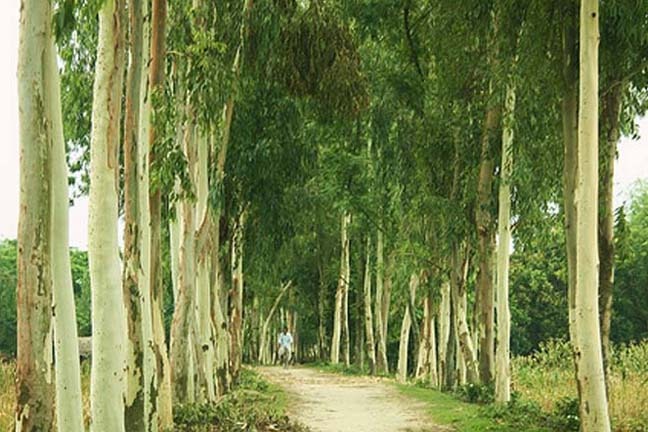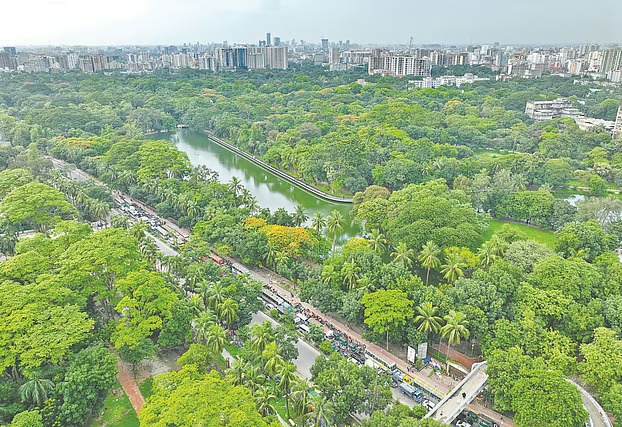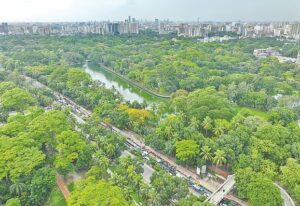Clean air is not a luxury, it is a constitutional right—this powerful message resonated from a high-level policy breakfast held this morning at the Bangladesh Institute of Planners (BIP) Conference Hall. The event, titled “Revisiting Energy Policy to Ensure Clean Air,” was jointly organized by the Center for Atmospheric Pollution Studies (CAPS), BIP, and the Center for Participatory Research and Development (CPRD).
The session was chaired by Professor Dr. M Shahidul Islam, Chairman of the Department of Geography and Environment at the University of Dhaka. In his welcome remarks, BIP’s General Secretary and urban planner Sheikh Muhammad Mehedi Ahsan highlighted the urgency of integrating clean air considerations into national development frameworks.
Presenting the keynote paper, Professor Dr. Ahmad Kamruzzaman Majumder, Chairman of CAPS, stressed the need for a pragmatic national energy plan and the immediate formulation of a Clean Air Act. “Clean air is our constitutional right, not a privilege,” he asserted. He emphasized that energy policy should no longer be driven solely by megawatt targets or economic motives but must also prioritize human health, environmental protection, and a resilient economic future.
Abu Saeed Md. Kamruzzaman, Chief Executive Officer of Dhaka North City Corporation (DNCC), expressed concern about the environmental cost of coal-based power plants. “In the past, seven coal-based projects required acquiring 700–1000 acres of mostly agricultural land per plant. These installations not only pollute the air but also harm agriculture and biodiversity,” he said.
Dr. Khondaker Golam Moazzem, Research Director at the Centre for Policy Dialogue (CPD), urged the current and future governments to reduce reliance on foreign consultants and instead engage national experts in developing energy policies. He also called for a revision of the country’s Integrated Energy and Power Master Plan (IEPMP).
Speaking on behalf of international stakeholders, Nayoka Martinez-Backstrom, First Secretary at the Embassy of Sweden in Dhaka, noted that many European partners support a transition to clean and just energy systems. She added, “Creating an enabling environment for foreign direct investment and applying systemic solutions will attract more global partners to Bangladesh’s energy sector.”
Jacob Ferdinand, Green Growth Program Specialist at UNDP Bangladesh, emphasized the importance of factoring in environmental impacts in all energy decisions. He said, “Air pollution is closely linked to the sources of our energy. Integrating air quality goals into energy planning is essential to achieving the Sustainable Development Goals (SDGs).”
Md. Saifur Rahman, Joint Secretary at the Ministry of Environment, Forest and Climate Change, remarked, “Political commitment is crucial for environmentally sustainable development. While we have several laws and policies in place, enforcement remains weak. We need to develop tools aligned with our intent, strengthen green finance, leverage technology, and enhance international cooperation.”
Urban planner Adil Muhammad Khan stressed that urban transport improvements and increased use of renewable energy could significantly reduce both energy demand and urban air pollution.
CPRD’s Executive Director Md. Shamsuddoha concluded by stating, “Our policies must not be shaped in isolation. They should align with global development goals and frameworks.”
Other distinguished speakers included Dr. M Safiur Rahman, Chief Scientific Officer at the Bangladesh Atomic Energy Commission, and Sanjida Haque, Urban Planner at DNCC.
The event called upon all stakeholders—government agencies, civil society, development partners, and the private sector—to collaborate in crafting an energy transition that ensures the right to clean air while accelerating progress toward a sustainable, equitable future.
Source: CAPS

